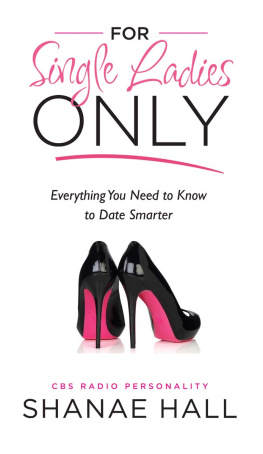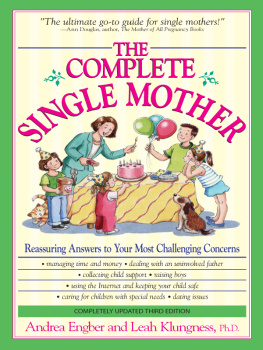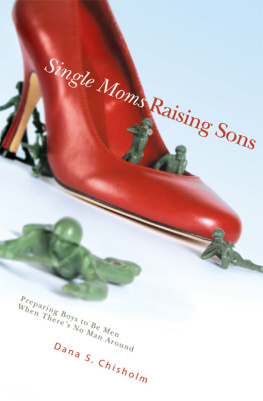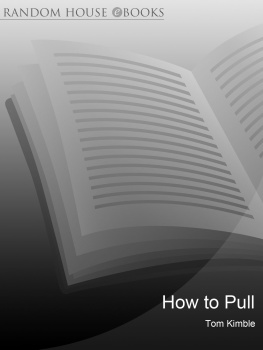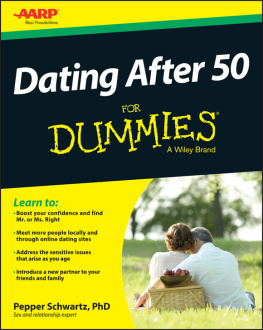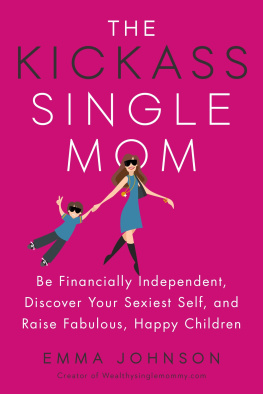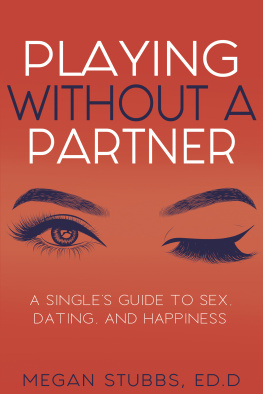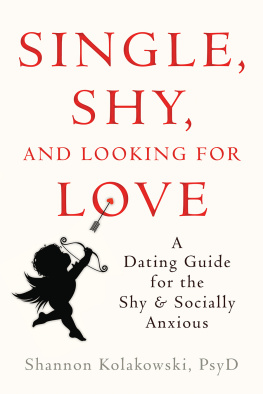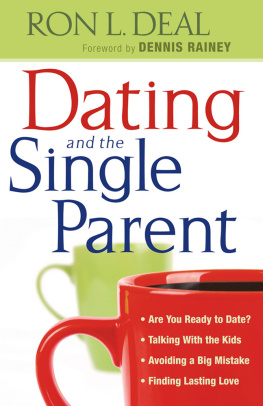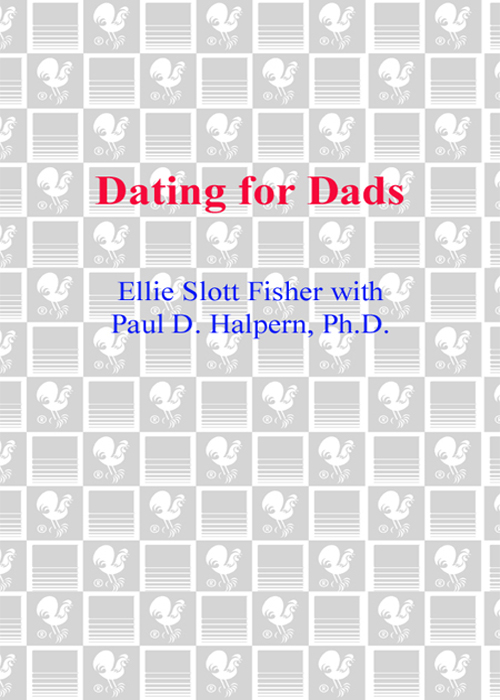
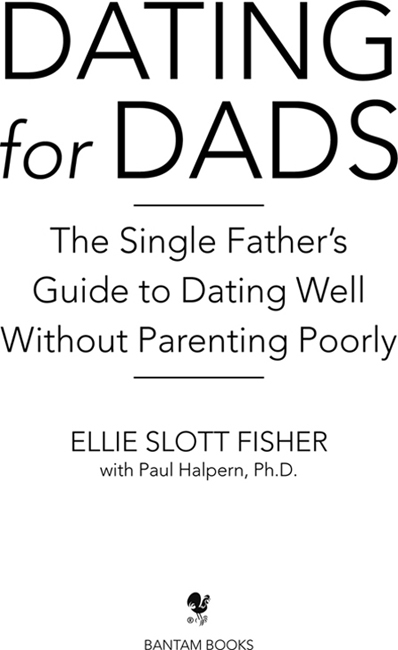
Contents
For Thelma and Herbert Sayare,
who prove that single parents can date well
without parenting poorly.
Acknowledgments
A t first, I was daunted by the task of finding single dads to interview for this book, because the only ones I knew personally were the ones I had dated. And I wanted to dredge up those old memories as much as a Red Sox fan wants to rehash the 1986 World Series. So, instead, I e-mailed people from various aspects of my life, asking for the names of any single dads who might be interested in being part of this project. I was overwhelmed by the response. I am so grateful, not only to the wonderful dads and the impressive children who let me peek into their lives, but to those people who connected me to them. Thank you for responding to my request: Evie Ferris, Diane Rogers, Lori Frank, Paula Koerte, Sindey Dranoff, Hank Herman, Esther Ganz, Malinda Berardino, Shelley Miller, Susan Cohen, Susie Schultz, Mark Schultz, Susan Whitehead, and Rachel Cantlay.
You led me to a group of men and children who should serve as an inspiration to all single-parent families. Although I've changed their names in the book, some have given me the honor of thanking them publicly. They include: Adam Waxman, Vince Clews, Ashleigh Clews, Steve Ritzau, David Frelicher, Howard Cove, Max Cove, Jeff Sameroff, Evan Sameroff, Daniel Robinson, David Griffitts, Natalie Griffitts, Marissa Griffitts, Dan Weitzman, Jeff Price, Bill Brauner, Chris Fallon, Kaitlyn Fallon, Scott Sayare, Jack Cantlay, and Melanie Miller.
When a book is completed, every author claims to have had the best editor, but they're wrong. I did. Julie Will not only took a risk on a book for men, but she meticulously and enthusiastically edited these pages. She consistently made me feel as though I was her only author, responding to my queries expeditiously and respectfully. I am grateful to several other people at Bantam Dell, including Nita Taublib, Danielle Perez, Barb Burg, Belina Huey, and Kathleen Baldonado, and to my agent, Susan Cohen, who once again worked tenaciously on my behalf.
A book like this can only be as good as the advice it offers, and for that I turned to a notable group of professionals. A huge thank-you goes to Paul Halpern, who, I knew two minutes into our first interview, was not only an expert on single-parent families, but a kindred spirit as well.
Thank you, too, to my medical experts, Dr. Brad Rogers and Dr. Howard Rosenthal, whose comments should help allay some of the physical concerns men have when they resume dating. And to attorneys Justice Sandra Schultz Newman and Judith E. Siegel-Baum for their brilliant advice on legal issues faced in second marriages and blended families.
Once again, all my friends have been supportive of my work, but a few of them have been needled more than others. So thanks for always asking, and listening: Fran Bank, Helen Bosley, Pam Cohen, Elaine Flatch, Doris Grassi, Mia and Jack Ingham, Elise Katz, Bea Lazaroff, Rebecca Lee, Richard Moore, Fran Rosenbaum, Sally Solis-Cohen, Puddie Sword, Lisa Waldman, and Eileen Wolf. To Jon Roth, who was the second happiest person when my manuscript was completed, thank you for your constant support, editing advice, and love.
No single parent can do it alone without the affection and devotion of her family, which, in my case, includes Thelma and Herb Sayare, the entire Schultz clan, and of course, my two biggest fans: Debra and Noah Fisher. You two make my being a parent a complete and utter joy.
Foreword
by
Paul Halpern, Ph.D.
I n my thirty-five years of practice as a clinical psychologist in Philadelphia, I've counseled a large number of single fathers and their children. These men often say they seek therapy not because they are struggling with their divorce or the death of their wife, but out of concern for their kids. I think it is easier for men in our society to enter therapy, at least initially, for the good of the children. It is difficult for men, who are generally reluctant to share their feelings and may see therapy as a sign of weakness, to admit that they need help for themselves. But what all single dads come to realize, eventually, is that they have their own feelings of loss, loneliness, and fear about the future. While these newly single fathers want the best for their kids, they often don't recognize that their own happiness is equally importantespecially if they are to rise to the challenge of providing security and emotional nurturance to their children.
Over the years, I have seen many widowed and divorced men overwhelmed with the thought of dating again. For some, their last date occurred twenty-five years ago, when they worried more about hiding their acne from their date than hiding a woman from their kids. As sophisticated and successful as these men are, when it comes to dating, many of them are substantially less confident. Not only is the world of dating brand-new, but the fact that they are fathers complicates things even further. All of a sudden they are faced not only with the challenge of finding romance again, but with the unexpected burden of increased parental responsibilities.
Finally, a book has been written that reassures these men that they can be terrific fathers without abandoning their own needs. Relationship expert Ellie Slott Fisher understands the unique challenges faced by single parents. As a mother who has been widowed, remarried (briefly), and divorced, all the while raising a son and daughter by herself, Ellie knows firsthand that combining dating with parenting is an imperfect science. She acknowledges that mistakes are easy to make, and that she's made plenty of them herself. But drawing on the lessons she's learned, as well as my insights, and professional information from medical and legal experts, she offers solid, judgment-free advice. Single dads faced with the challenges of having a social life while raising children will find her book immeasurably helpful.
I must admit I wasn't necessarily thinking about the complications of dating as a single father when I received a call from Ellie about this project. I was on vacation in Maine during the late summer, the time when many therapists close down their offices and get away with their families. She was interviewing therapists who work with single dads and their children, and one of my former patients had told her about me. Intrigued by the idea of this book, I met with Ellie to discuss the basic issues of single fatherhood. Over the next several months, as we delved into more details, our conversations became deep and rich, and I realized what a compelling need there was for a guide like this to help single dads who date.
We also discussed case studies, since my practice includes a significant number of single-father families. I told her about a recently widowed man who came to see me in order to help his children deal with the death of their mother. After some time in family therapy, and once he felt better about the emotional stability of his children, he began to face the fact that he, too, was struggling with feelings of loss and depression. And having never been a hands-on parent, he was overwhelmed by his new role as his children's only parent. He also realized that after twenty years of marriage, the thought of dating again terrified him. Initially, he had a few stumbles. He misread women, made some bad choices, and vowed more than once to never date again. But he persevered, and eventually met a woman with whom he formed a lasting, loving relationship. When it came time to introduce her to his kidsa difficult processwe dealt with many more issues in family therapy. But today he is very content with his new wife, and his children have adapted well.
Next page

